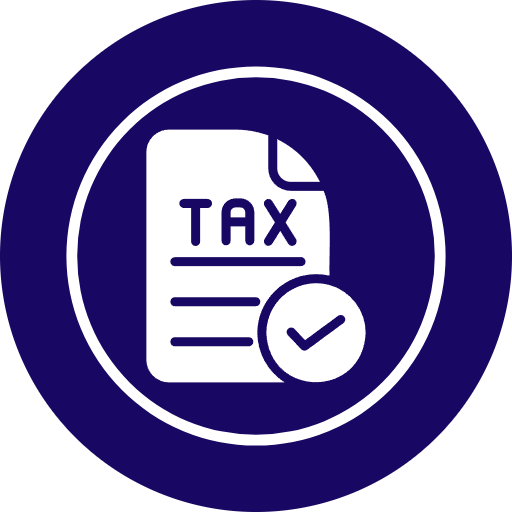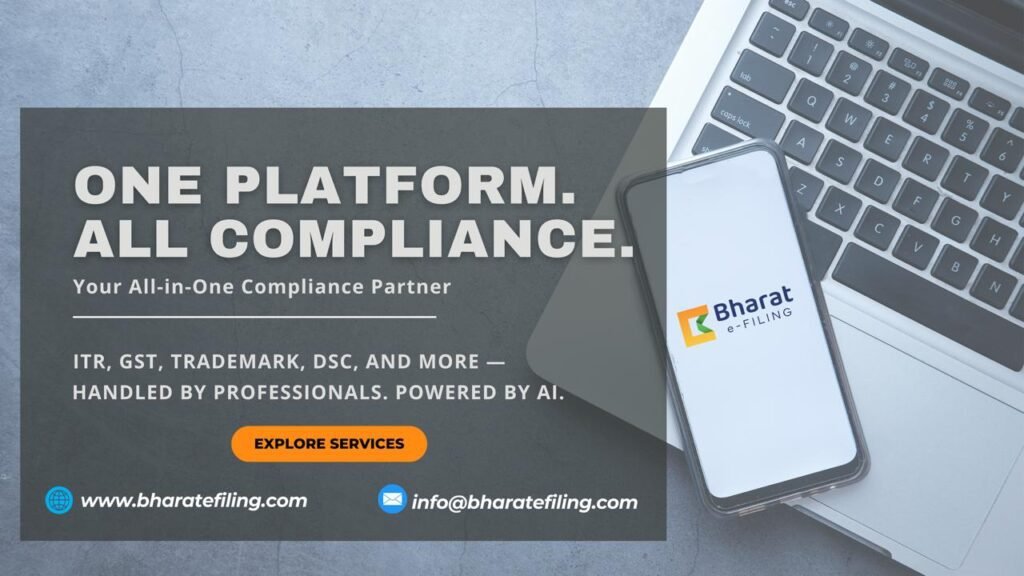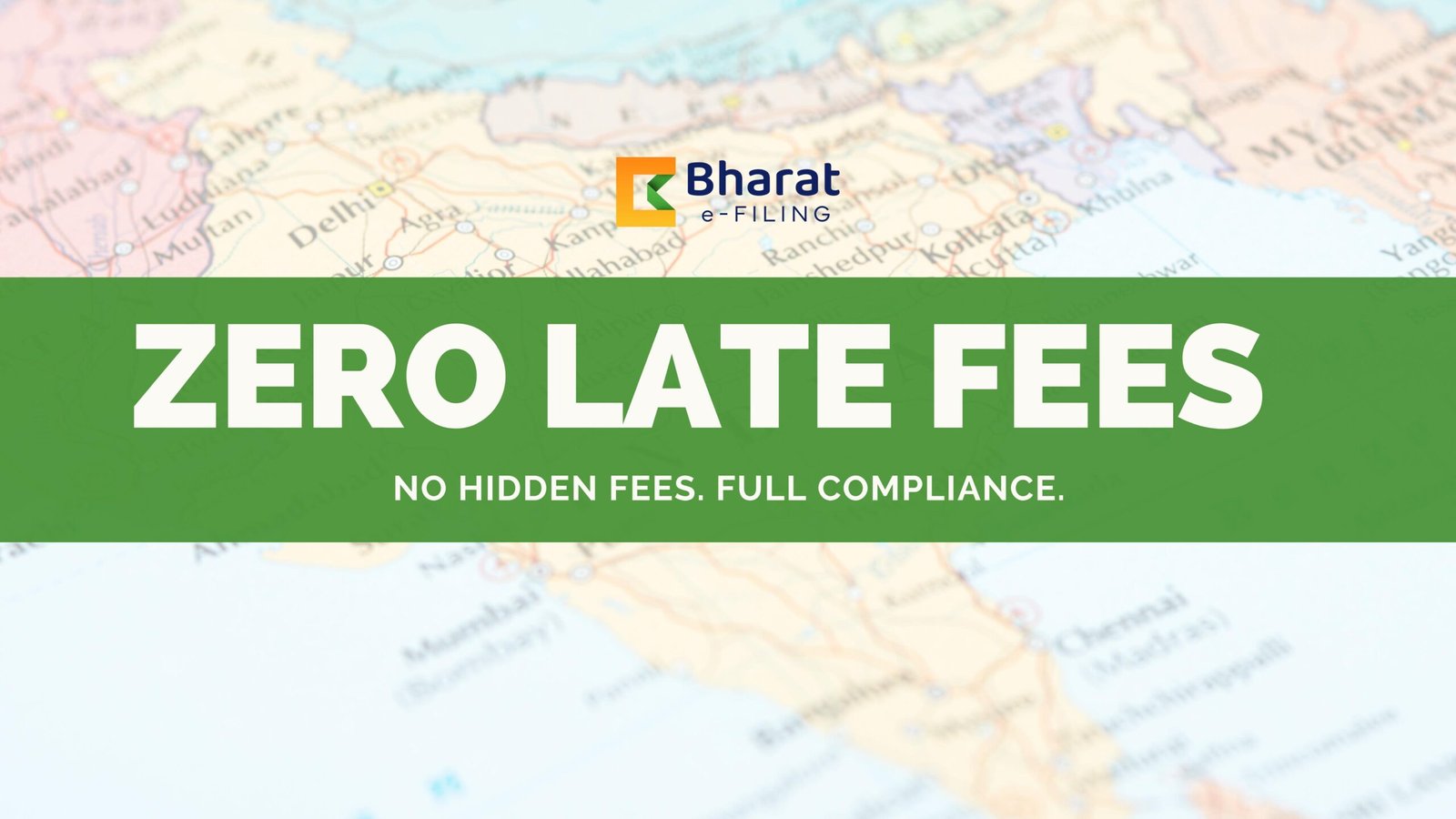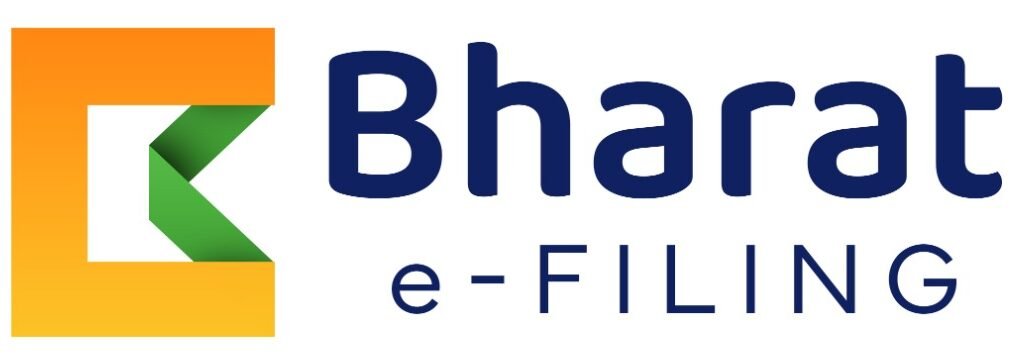
Offers and discounts *

Use code WELCOME10
and get 10% off your first service purchase!

Save 18% by providing GST Number.
Not registered yet? Get it now
ITR for Self Employed
Self-employed individuals—such as freelancers, consultants, and small business owners—must file Income Tax Returns if their total income exceeds the basic exemption limit


Filing done within 24 Hours

100% Money Back Guarantee

Applicable ITR Forms

ITR-3
Income from business or profession, salary income, books of accounts maintained

ITR-3
Salary + business or professional income having turnover upto 1 crore .

ITR-3
Salary + business or professional income having turnover more than 1 crore upto 2 crores

ITR-4 Sugam
Income from business or profession, turnover upto 2 crores having presumptive income under Section 44AD/44ADA/44AE
Documents Required
To file Income Tax Return efficiently, please gather these documents handy for speedy filing process:
GST Returns (if registered)
For salaried individuals, if applicable.
Investment Information
Details of all investments made through bank or by cash.
Bank Statements
Bank statements of all bank accounts: savings, current, loan.
Books of Accounts
For those with business or professional incomePurchase Bills Sale Bills General ExpensesOutstanding Receivables & Payables etc.
Fixed Assets Details
Fixed Assets Details: Details of all fixed assets including purchase and sale of assets during year.
PAN and Aadhaar Card
Must be linked to your PAN for the filing process.
- Form 16 For salaried individuals, if applicable.
Get Expert Consultation

ITR for Self Employed
What do you mean by Self-Employed?
A self-employed person earns income by running their own business, freelancing, or practicing a profession like law, medicine, consultancy, etc.
Following are some of the examples:
- Shopkeepers
- Freelancers (designers, writers, developers, etc.)
- Doctors, lawyers, and architects
- Consultants or tutors
- Small business owner
What is ITR-3?
The ITR-3 Form is specifically designed for taxpayers who earn income from business or professional activities. This form allows the Income Tax Department to gather essential financial details to ensure accurate tax compliance from individuals involved in business or professional income-generating activities.
Who Should Use ITR-3?
The ITR-3 Form is suitable for individuals and HUFs who meet certain conditions:
- Business Ownership or Directorship: Taxpayers who are company directors or operate a business.
- Residency Status: Applicable for both residents and non-residents.
- Pension Income: Applicable to those receiving pension income.
- Income from House Property: Individuals earning from one or multiple properties.
- Investments in Unlisted Shares: Taxpayers with investments in unlisted equity shares.
- Income from Profession or Business Activities: Those whose income falls under “Profits and Gains from Business or Profession.” This category includes income elements like salary, bonuses, commissions, or other remunerations related to business or profession.
Additionally, taxpayers with income from the following sources may file using the ITR-3 Form:
- Earnings from one or multiple house properties.
- Income from capital gains, both short-term and long-term.
- Earnings from lawful gambling, such as lotteries or horse racing.
- Profits from a sole proprietorship business owned by an individual or HUF.
- Income from foreign assets.
Who Cannot Use ITR-3?
Individuals or HUFs earning as partners in a partnership firm conducting business or professional activities cannot file using ITR-3. Such taxpayers should use the ITR-2 Form instead.
Due Dates for filing ITR-3
Filing deadlines vary based on audit requirements:
- Non-Audit Cases: Due date is generally July 31.
- Audit Cases: Due date is generally September 30.
- These dates may change if the tax authorities announce extensions, so it’s important to stay updated.
Penalties for Late Filing of ITR-3
Failing to file by the due date can incur penalties:
- Filed After Due Date but Before December 31: A fee of ₹5,000.
- Filed After December 31: A fee of ₹10,000. If the taxpayer’s income is below ₹5 lakh, the late fee is capped at ₹1,000.
Why Choose Bharat e-Filing for ITR-3 Filing?
Bharat e-Filing is committed to making ITR-3 filing straightforward and efficient. Here’s why we’re your ideal partner:
- Expert Guidance: Our team provides professional support, ensuring compliance with all tax regulations.
- Accurate Documentation Assistance: We guide you in compiling the required documents.
- Secure Filing Platform: Our platform prioritizes the confidentiality and safety of your data.
- Timely Reminders and Notifications: To help you avoid penalties, we provide updates on upcoming deadlines and relevant tax changes.
- Post-Filing Support: Assistance is available even after filing, ensuring your return is processed smoothly.
Starting a Business and Confused Where to Begin?
At Bharat E-Filing, we take care of Accounting, Business, Compliance, and handle end-to-end solutions.
Customer Reviews For ITR for
Self Employed
Our clients trust Bharat e-Filing for reliable, efficient and expert-led on time services. Here’s what they have to say.
Best ITR filing experience ever!
Filing ITR used to stress me out every year. But this year with Bharat e-Filing, it was quick, smooth, and fully online. I just uploaded my Form 16, and their team took care of everything. No calls, no confusion—just expert help and fast service. Perfect for salaried people like me!
Quick, reliable, and absolutely stress-free
This was my first time using Bharat e-Filing, and I’m genuinely impressed. As a small business owner in Lucknow, I’ve dealt with so many complicated compliance issues—but their team made GST and ITR filing effortless. Everything was smooth, digital, and stress-free. After this experience, I’ve decided to hand over all my compliance work to them. Finally found a service I can trust!

FAQs for ITR Filing – Self Employed FAQ's
ITR-1, also known as Sahaj, is an income tax return form for salaried individuals earning up to ₹50 lakh from salary, one house property, and other sources like interest. It is simple, annexure-less, and ideal for individuals with straightforward income sources.
The ITR-3 form is used in India by individuals and Hindu Undivided Families (HUFs) with income from a business or profession.
Individuals or HUFs who are company directors, receive pension income, have house property income, or own unlisted equity shares should use the ITR-3 form.
Partners in a partnership firm earning income from the business or profession should file ITR-2, not ITR-3.
Key documents include PAN, Aadhaar card, bank account details, Form 16 (if applicable), investment records, and business account books.
For the assessment year 2024-25, the due date for non-audit cases is July 31, 2024.
Yes, if you file after the due date but before December 31, a ₹5,000 fee applies; after December 31, a ₹10,000 fee applies. Income under ₹5 lakh caps the fee at ₹1,000.
Deductions are available under the “Deductions and Taxes Paid” section, in line with sections of the Income Tax Act.
The ITR-3 form has six main sections: General Information, Income Details, Deductions and Taxes Paid, TDS/TCS Credit, Verification and Declaration, and Schedules.
This section requires reporting of income from salaries, pensions, annuities, and family pensions, along with total taxable income and tax liability.
Related services
Related products
- Income Tax
TDS Return Filing
₹9,999.00 – ₹18,999.00Price range: ₹9,999.00 through ₹18,999.00 Book Now This product has multiple variants. The options may be chosen on the product page - Income Tax
ITR for LLP
₹3,499.00 – ₹5,999.00Price range: ₹3,499.00 through ₹5,999.00 Book Now This product has multiple variants. The options may be chosen on the product page
Related services
- Income Tax
ITR for Company
₹3,499.00 – ₹5,999.00Price range: ₹3,499.00 through ₹5,999.00 Book Now This product has multiple variants. The options may be chosen on the product page - Income Tax
ITR for LLP
₹3,499.00 – ₹5,999.00Price range: ₹3,499.00 through ₹5,999.00 Book Now This product has multiple variants. The options may be chosen on the product page - Income Tax
ITR for Partnership Firms
₹2,999.00 – ₹4,999.00Price range: ₹2,999.00 through ₹4,999.00 Book Now This product has multiple variants. The options may be chosen on the product page - Income Tax
ITR for Sole Proprietorship
₹2,499.00 – ₹4,499.00Price range: ₹2,499.00 through ₹4,499.00 Book Now This product has multiple variants. The options may be chosen on the product page - Income Tax
ITR for Self Employed
₹2,499.00 – ₹4,499.00Price range: ₹2,499.00 through ₹4,499.00 Book Now This product has multiple variants. The options may be chosen on the product page






